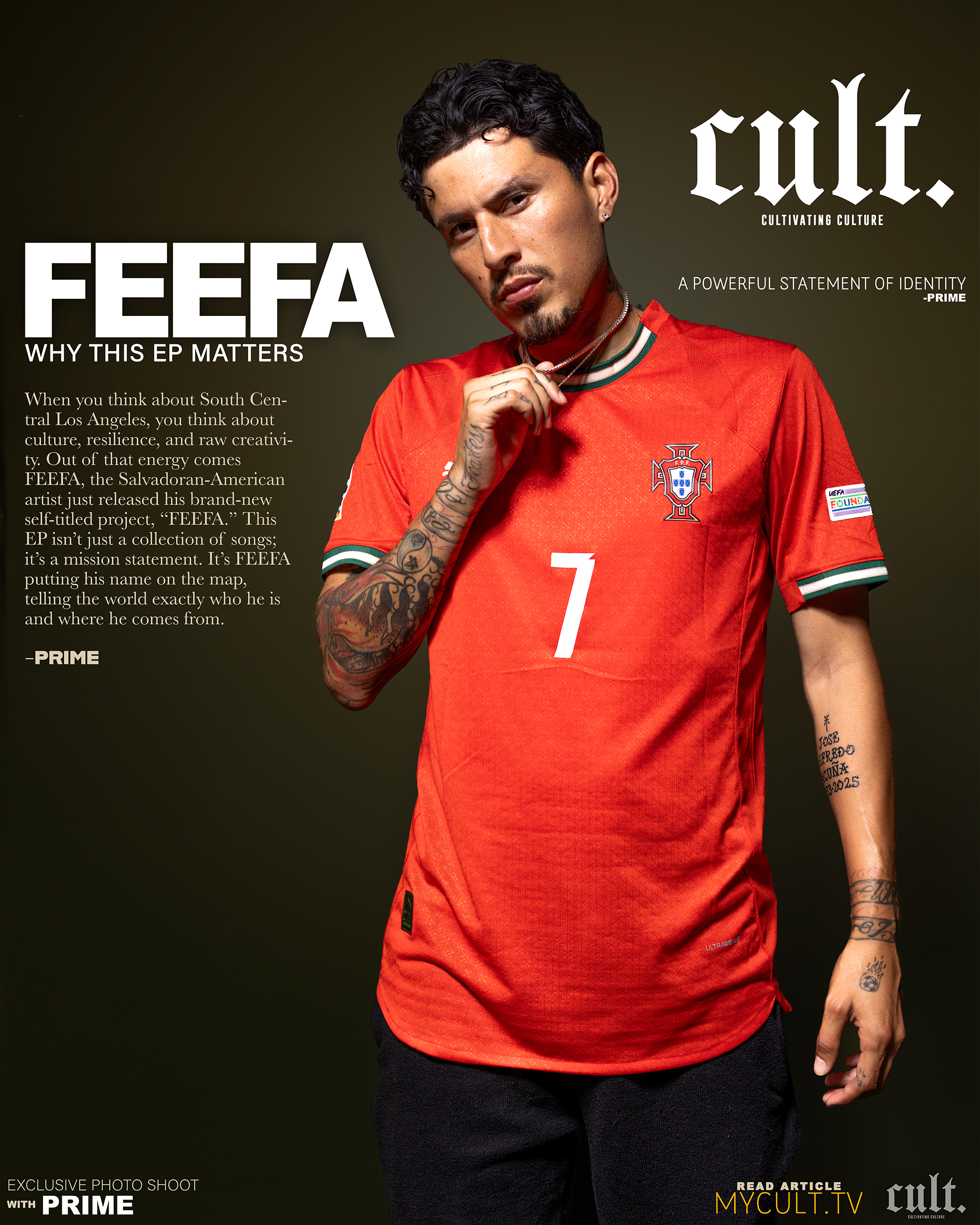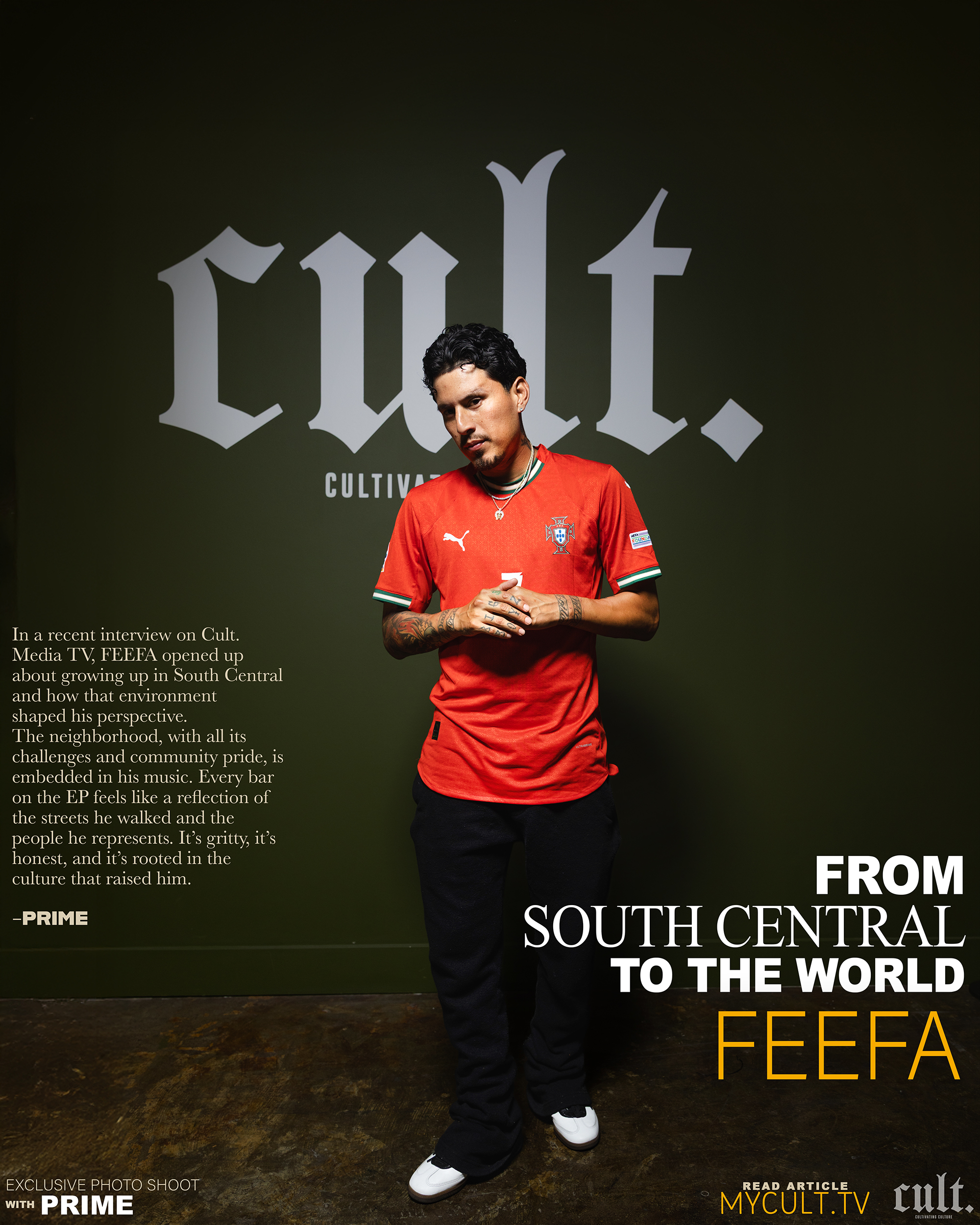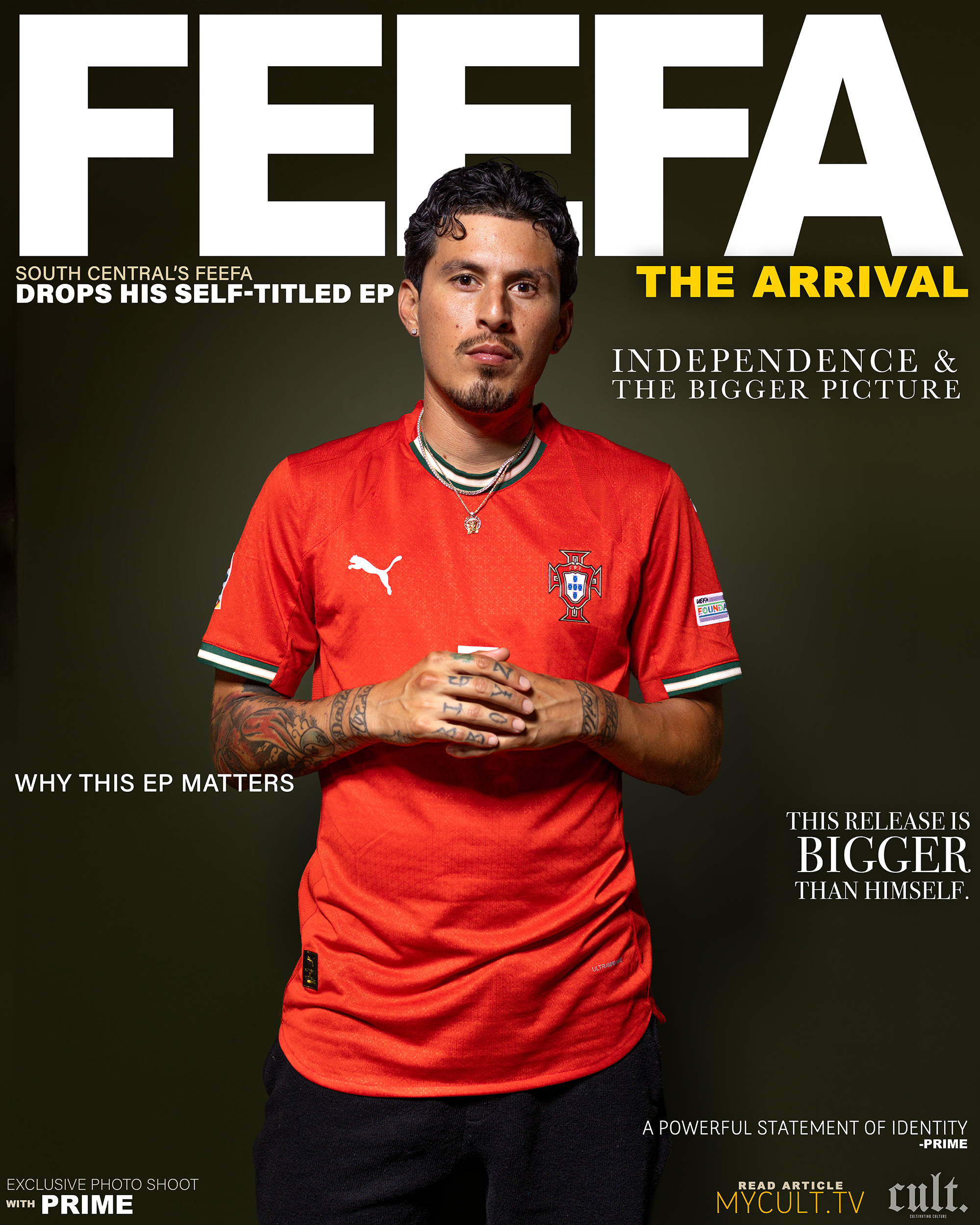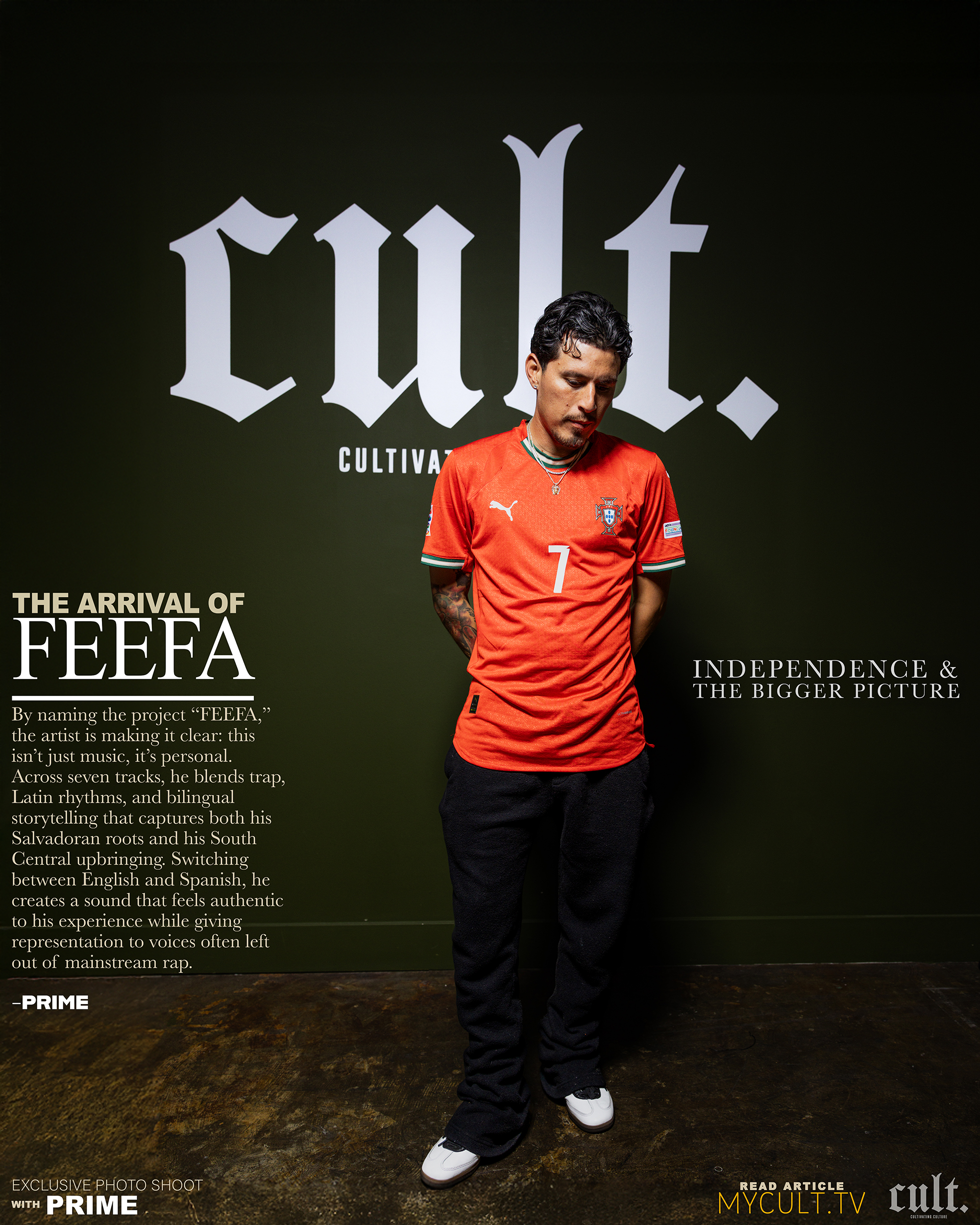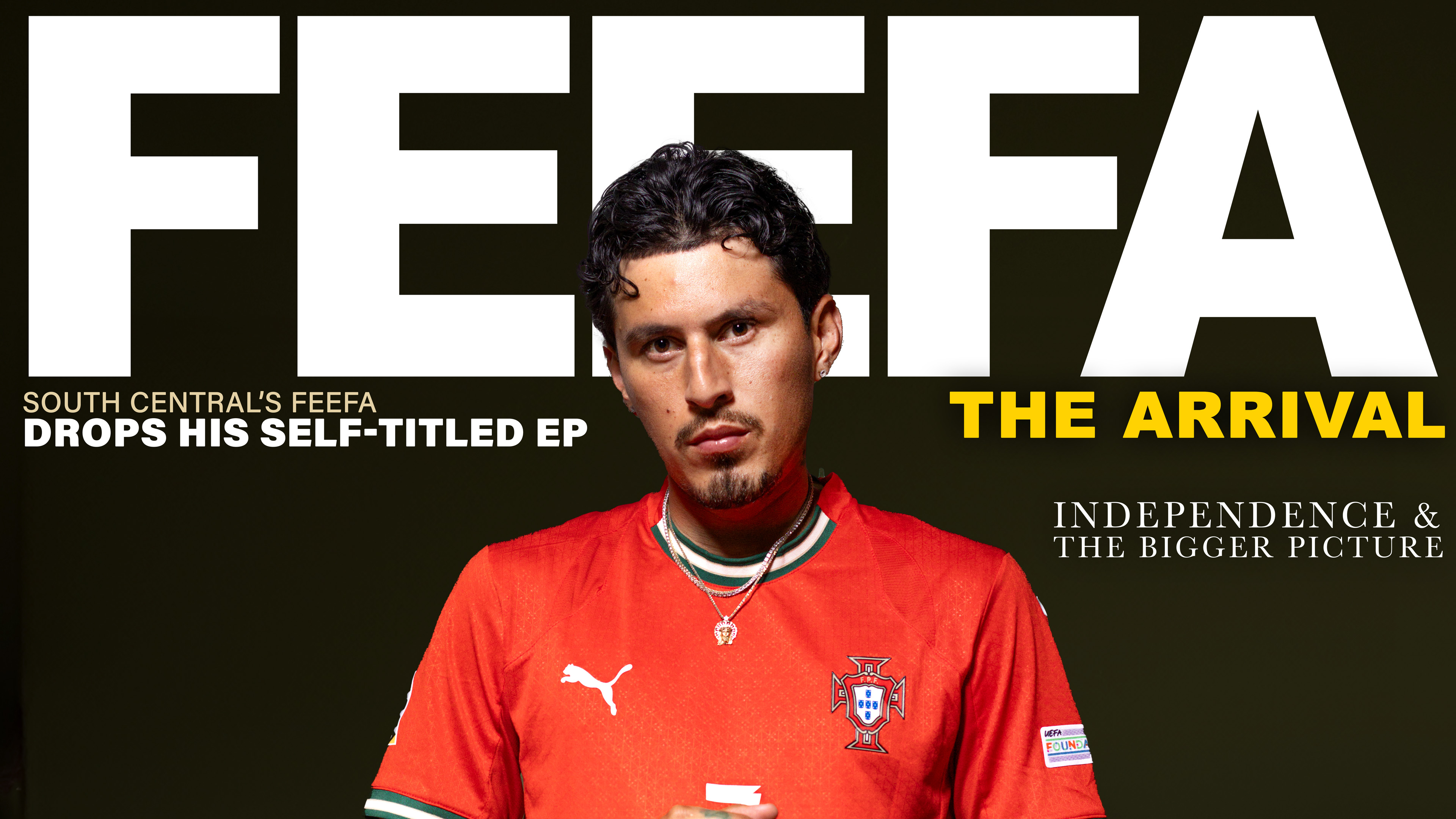
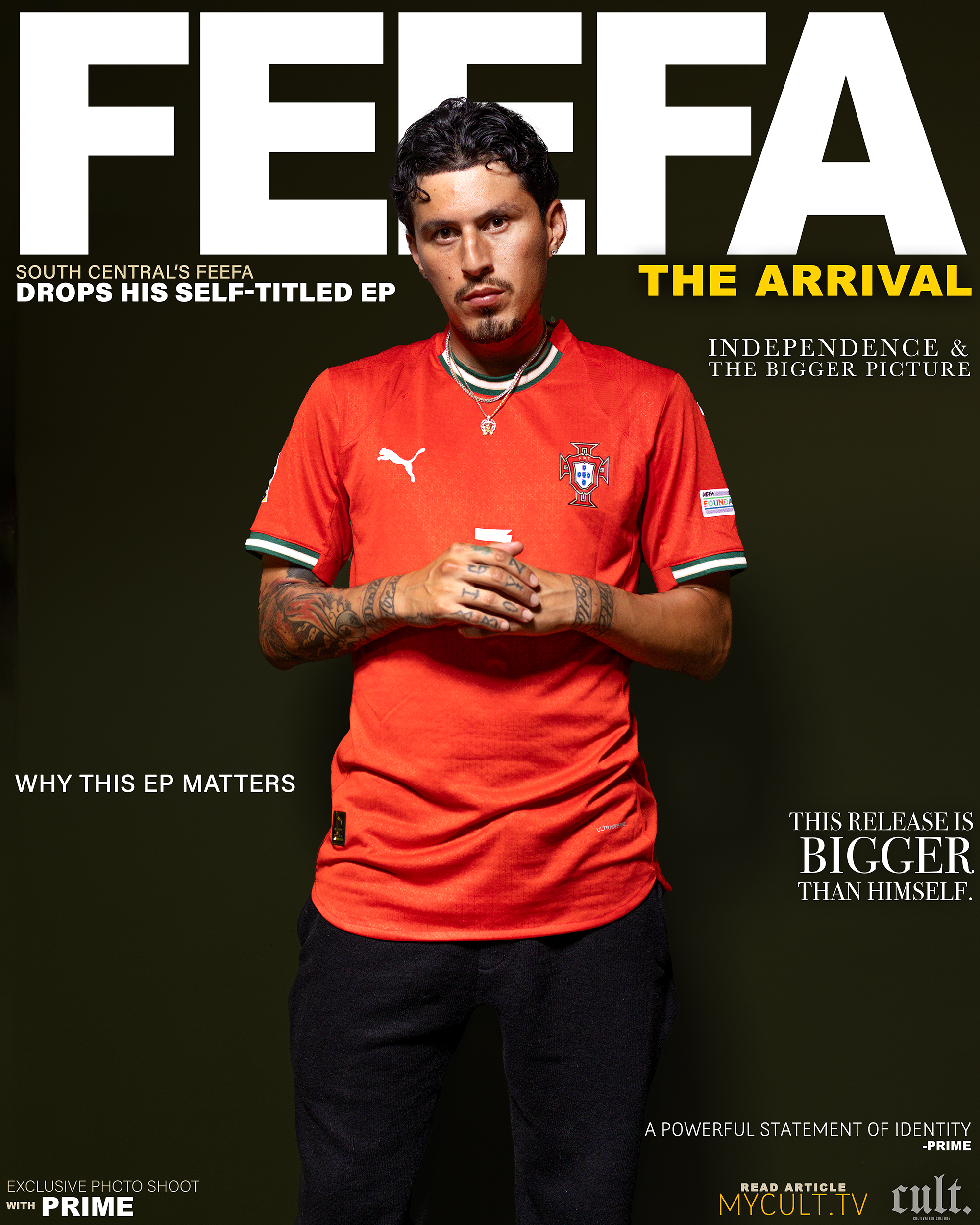
When you think about South Central Los Angeles, you think about culture, resilience, and raw creativity. Out of that energy comes FEEFA, the Salvadoran-American artist just released his brand-new self-titled project, “FEEFA.” This EP isn’t just a collection of songs; it’s a mission statement. It’s FEEFA putting his name on the map, telling the world exactly who he is and where he comes from.
By naming the project “FEEFA,” the artist is making it clear: this isn’t just music, it’s personal. Across seven tracks, he blends trap, Latin rhythms, and bilingual storytelling that captures both his Salvadoran roots and his South Central upbringing. Switching between English and Spanish, he creates a sound that feels authentic to his experience while giving representation to voices often left out of mainstream rap.
In a recent interview on Cult. Media TV, FEEFA opened up about growing up in South Central and how that environment shaped his perspective. The neighborhood, with all its challenges and community pride, is embedded in his music. Every bar on the EP feels like a reflection of the streets he walked and the people he represents. It’s gritty, it’s honest, and it’s rooted in the culture that raised him.
What makes this project even more important is the way FEEFA is moving. Working with UnitedMasters, he’s carving his own lane without compromising his voice. That independence shines through in the EP; it’s not watered down, not chasing trends, but instead carving out new space for Salvadoran American artists in hip-hop and trap. “FEEFA” is proof that he’s not just chasing success, he’s building a blueprint for others to follow.
For FEEFA, this release is bigger than himself. By naming the EP after himself, he’s putting a spotlight on Salvadoran representation in music and pushing his community into global conversations. “FEEFA” is raw, it’s real, and it’s here to remind us that South Central is still one of the most powerful storytelling hubs in music today. If you’re looking for an artist who blends authenticity, bilingual flow, and cultural pride, this EP is where you should start.
